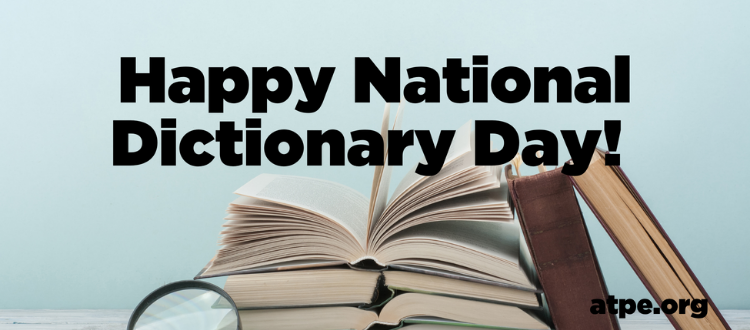Defining National Dictionary Day

Date Posted: 10/15/2021
Every Oct. 16, we celebrate National Dictionary Day—not to observe the anniversary of the publishing of the first American dictionary, but instead to honor the birthday of the man many recognize as the “Father of American Scholarship and Education,” Noah Webster Jr.
Webster may not have written the first dictionary used in the United States, but he did, however, provide Americans with a contemporary and native alternative to the British dictionaries available at the time. These traditional lexicons could not accurately reflect the everchanging American dialect from across the ocean, and that is where Webster found an opportunity to make his mark.
His first dictionary, A Compendious Dictionary of the English Language, was published in 1806. This work would be a precursor to his more comprehensive follow-up that included many uniquely American words and spellings. Although it would take him more than a quarter century to complete, he intended his fully expanded edition to be much more than just a survey of the English language; it was to represent an intellectual foundation for American nationalism.
As the English language naturally evolved and grew in the United States, new words and phrases were coined and spread across the country. With every new edition of a dictionary, additional words are added and meanings altered to fit the reality of how we use them. Webster embraced and chronicled these changes, and his legacy reflects his impact on our language and the American education system.
To observe #NationalDictionaryDay at home or in the classroom, consider playing word games with students that focus on building their vocabulary or improving their spelling, such as Scrabble, word searches, or Mad Libs. Encourage students to familiarize themselves with language building tools including dictionaries or thesauruses to help them improve their vocabulary and assist them in reading and writing.
For more ideas on engaging with students and other educator resources, visit ATPE’s In the Classroom on the ATPE website.

